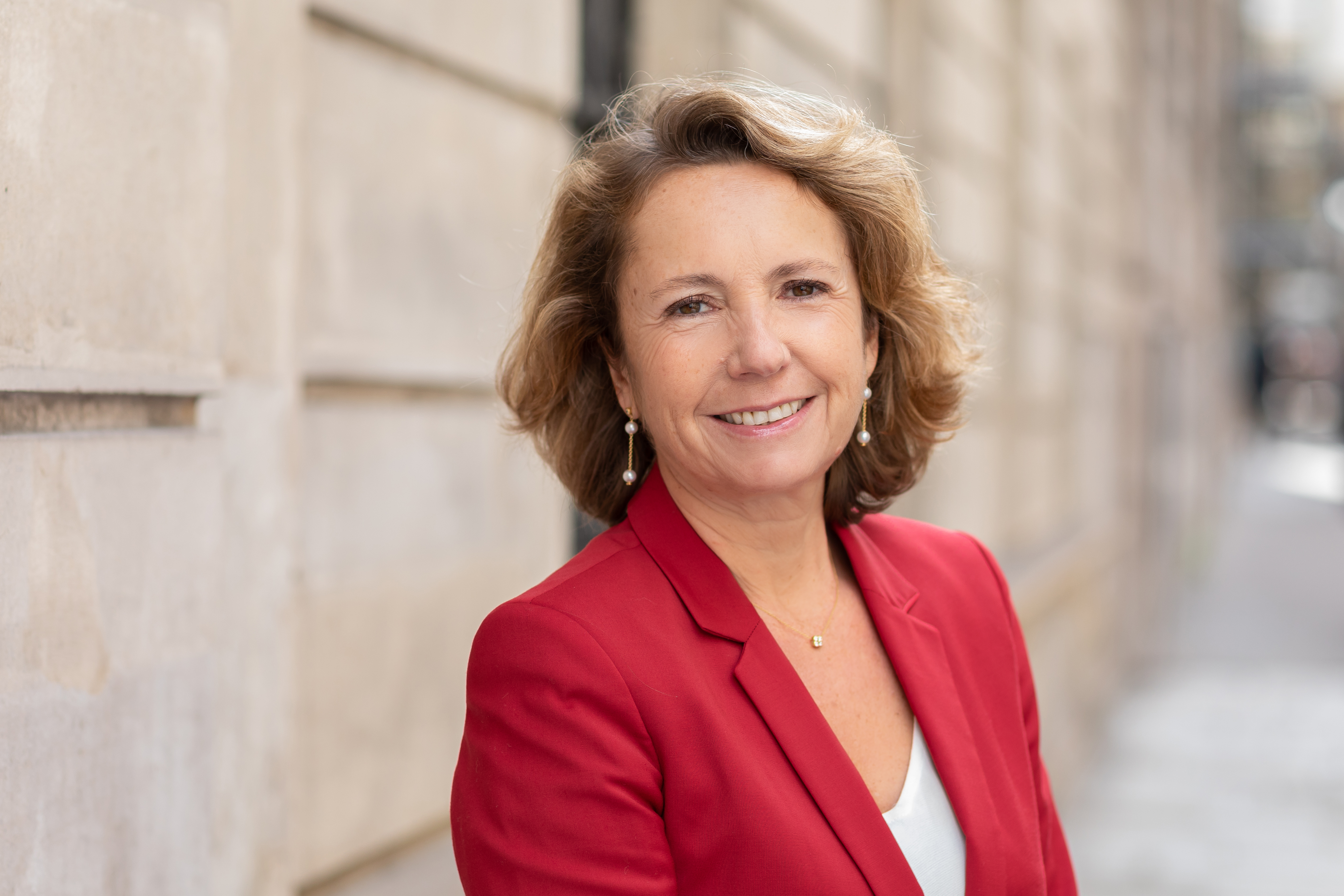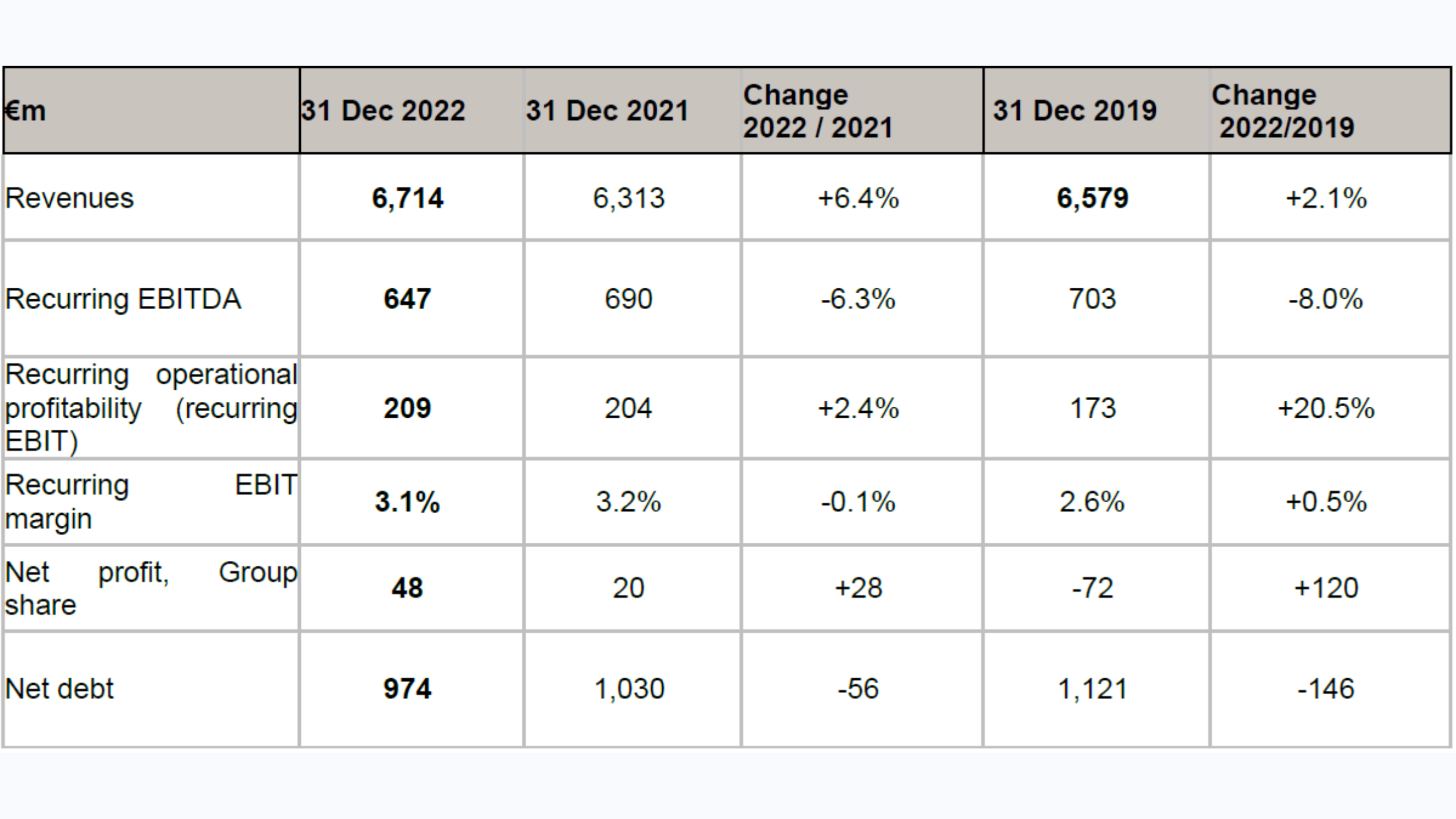Outstanding business development thanks to consolidated positions and iconic new contracts
In France, 2022 was an outstanding year, with core contracts renewed and extended, and numerous new contract wins.
Many of the Group’s urban contracts in French cities were renewed. Greater Bordeaux was the most prominent, but renewals were also signed in Dijon, Sète, Bourgoin-Jallieu and Strasbourg (technical support). Meanwhile, major new contracts came in for networks in Perpignan and Valenciennes.
Elsewhere in France, the Group won contracts for the iconic Mont-Saint-Michel as well as Senlis, Foix, and Issoire.
Meanwhile, the Group undertook several major launches: in June, Line B of the automated metro in Lyon; in July, the T13 light rail line (Saint-Germain-en-Laye to Saint-Cyr-l’Ecole) in the Paris region; and in September, Line b of the automated metro in Rennes, which registered over 120,000 journeys on its first day in operation.
Also in the Paris region, Keolis strengthened its market positions with five new bus networks: two in the département of Essonne, one in Yvelines, one in Seine-et-Marne and one serving portions of Val-d'Oise and Seine-et-Marne.
EFFIA, the Group’s carpark subsidiary, consolidated its performance with both major contract renewals in Lille and Dijon, and new contracts including the emblematic Château of Versailles. At year-end 2022, EFFIA had 300,100 parking places under management (including 75,200 on-street spaces) in 244 cities in France and Belgium.
On international markets, Keolis pursued its selective growth and repositioning strategy, notably via the sale of operations in Norway.
In a sign of momentum achieved in 2022, the Group launched two major light rail networks: one in Lusail (Qatar) through Keolis subsidiary RKH Qitarat (a joint venture formed by Keolis, RATP Dev and the Hamad Group), and the first light rail line in the Danish city of Odense. In Northern Europe, Keolis won a multimodal contract in Lund, Sweden, that includes management of the city’s light rail and electric bus networks.
The year also brought significant renewals, including a three-year contract to operate Thameslink, England’s largest rail network, through Govia, the Group’s joint venture with Go-Ahead Group.
In addition, several contracts were extended in 2022. These included a three-year extension to operate the automated metro in Hyderabad, India’s second-largest network inaugurated in 2017; a four-year extension to operate and maintain a bus line, under which Keolis runs a 100% electric intercity bus network in Denmark’s Northern Jutland region; and a two-year extension to operate the bus network in the Dutch city of Utrecht.
Designing passenger-centric mobility
With ridership recovering post-Covid and users gravitating to work from home and active mobility options, Keolis has taken the opportunity to reconsider mobility, seek alternative solutions, and adapt or create new services. Today digitalization, data and Keoscopie – the Group’s forecasting observatory - form the basis of a targeted, efficient strategy for rethinking passenger services. These resources have also served as powerful tools in the optimisation and continuous improvement of operation and maintenance processes.
Keolis also launched Hove, a wholly-owned Keolis Group subsidiary that specializes in designing and deploying digital tools. The move reflects its commitment to understanding local mobilities, moving the transport offer in the right direction, measuring its performance, and making travel easier for passengers. This is what the Group is working on with the Greater Nancy metropolitan council, using dynamic platform Patterns CO2 to measure the carbon footprint of mobility solutions.
Recruitment critical to service quality
In late 2021, as the labour shortage hit every operator in the transport sector, Keolis kicked off a broad, multifaceted recruitment campaign to attract and retain new employees. Launched under the theme of diversity, this drive was open to all and led to a significant increase in the number of applications received. The Group also entered into various partnerships (such as Défense Mobilité and sports-based initiatives to engage minority communities), set up a “co-opting” programme and continued to invest in training for young people through its apprentice training centre network.
Finally, Keolis is working on driver timetables and shifts, which is critical to attract and retain employees.
Keolis: an actor of energy transition
Keolis has set itself the objective of reducing greenhouse gas emissions by 30% and air pollution by tripling the number of kilometres operated with alternative energies by 2030 compared to 2019, and to certify 80% of its turnover to the ISO 14001 standard.
The Group supports public transport authorities in reducing the environmental impact of their activity by providing its expertise in areas including vehicle fleet renewal and retrofitting, promotion of active modes of transport such as cycling and walking, deployment of energy, water and waste management systems and preservation of biodiversity.
For example, Keolis is supporting the Dijon metropolitan area in its hydrogen development project, the Orleans metropolitan area in its energy mix strategy to decarbonise mobility, and has put new electric buses into service in the Copenhagen region in Denmark.


